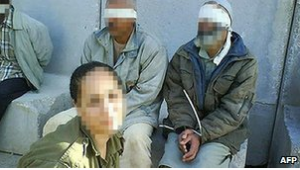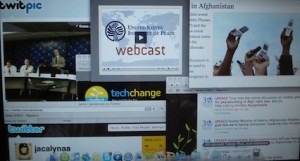The core project of the San Francisco based non-profit Censorship Research Center (CRC) — Haystack: Good Luck Finding That Needle — has recently been under much uncensored scrutiny.
In 2009, CRC — run by Austin Heap (Executive Director) and Daniel Colascione — created the flagship proxy software that allowed Iranians to get online in a post-election climate of censored Internet. In its initial days, Heap and Haystack got much praise — and rightfully so — as it was created with positive intentions to help voiceless Iranians find their voices online. The role social media played during the election aftermath — which saw the much disputed victory of incumbent Mahmoud Ahmadinejad over Green opposition candidate Mir-Hossein Mousavi — shaped the online Green Movement. Digital cameras and smartphones soared high in the air, capturing everything from protester chants to the tragic death of Neda Agha Soltan, and it was all uploaded to the Internet for the world to see.


